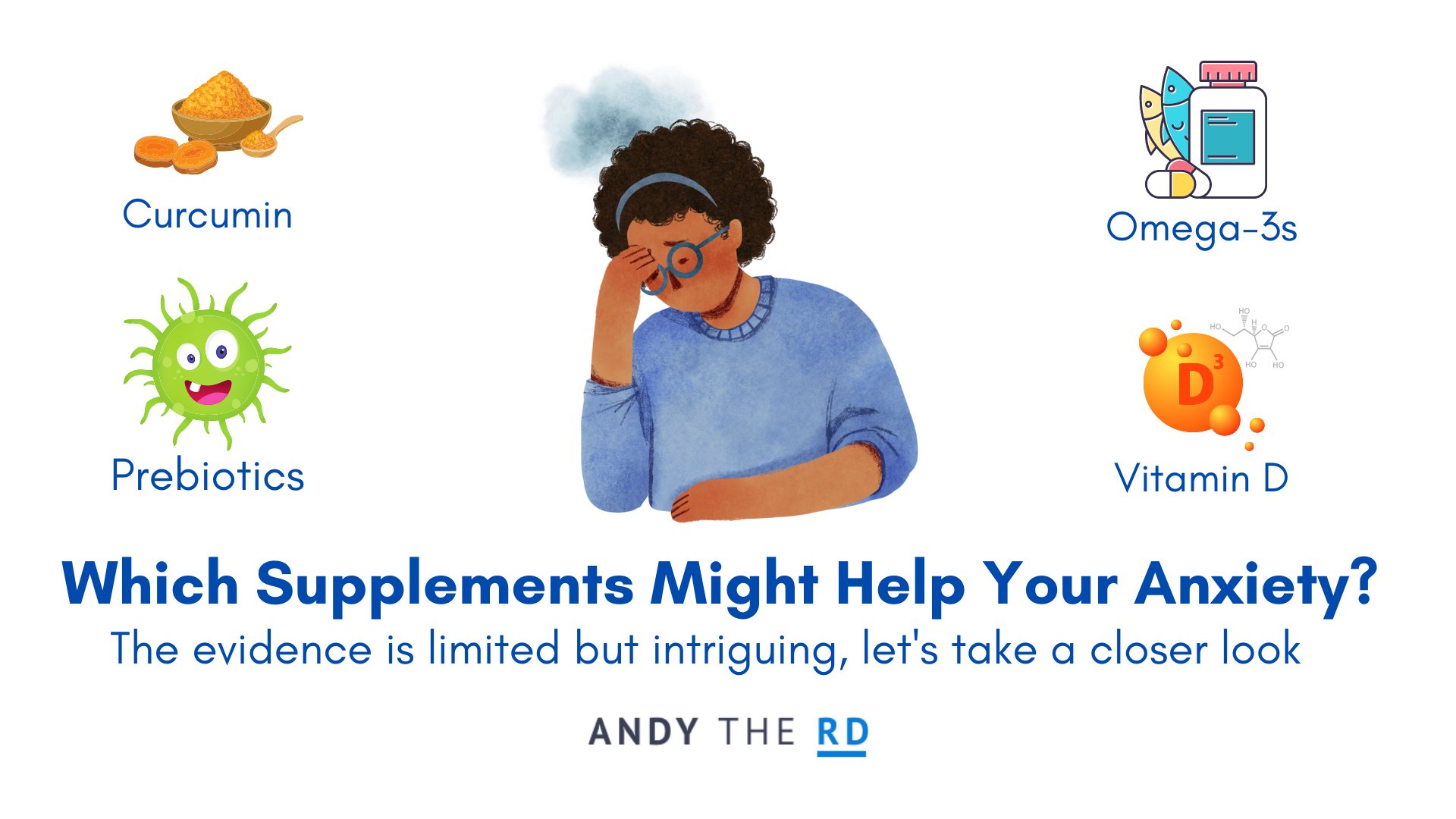Anxiety disorders are a family of conditions often referred to simply as “anxiety” which represent the most prevalent mental health condition globally.
Anxiety impacts more people than depression does, and is more common in females than males with over 275 million total global cases.
Various medications used to help treat anxiety disorders are among the most frequently prescribed in Canada, but what role might nutrition play?
This question isn’t easy to answer, in large part due to a lack of high quality scientific evidence.
With that said, the goal of today’s article is to offer up some insights into four common dietary supplements that may have a role to play in reducing symptoms in anxiety sufferers.
I must preface this piece again by noting that the breadth and quality of evidence isn’t great, and so you should look upon today’s recommendations with that in mind.
Let’s get to it.
Omega-3 Fatty Acids
The Problem: Omega-3 fatty acids occur naturally in very few foods including walnuts, chia/hemp/flax seeds, soy and fatty fish like salmon, trout and sardines.
Fish contain different and potentially more important types of Omega-3s, but national fish consumption in Canada isn’t great.
The Science: A 2018 systematic review and meta-analysis found that omega-3 supplementation of at least 2,000 mg of DHA/EPA daily had the potential to reduce symptom severity in those with clinical anxiety.
Vitamin D
The Problem: Vitamin D is found in meaningful amounts in even fewer foods than omega-3 fatty acids (fish) and a significant portion of the Canadian population has sub-optimal Vitamin D levels – particularly in the winter where we cannot synthesize it from the sun.
The Science: A 2020 study published out of Brain and Behaviour demonstrated that in anxiety sufferers with Vitamin D deficiency that 1,600 IU daily of Vitamin D over a 6 month period reduced the severity of their symptoms.
Prebiotic Fibre
The Problem: Dysbiosis or an imbalance between good/bad gut bacteria is increasingly associated with a wide range of negative health outcomes.
The inclusion of prebiotic fibre, which acts as “food” for your healthy gut bacteria, can help restore this balance.
If you want to learn more about the positive effects of prebiotic fibre, check out my piece on the topic.
The Science: A recently published study out of Scientific Reports established that a prebiotic supplement containing a specific prebiotic fibre ( GOS – galacto-oligosaccharides) improved healthy bacteria populations and reduced anxiety in a population of young adult women.
Legumes (lentils,chickpeas, kidney beans) are among the foods that are naturally high in this prebiotic fibre but that also tend to be underconsumed and underappreciated relative to their numerous health benefits.
Curcumin
The Problem: There is increasing scientific interest around the role neuroinflammation plays in worsening mental health conditions like anxiety and depression and curcumin, the bioactive component of turmeric, is among the most notable and well studied anti-inflammatory compounds.
Want to learn more about its various benefits? Read my article on the topic.
The Science: A 2015 randomized controlled trial determined that 1 gram per day of curcumin over a 30 day period reduced symptoms of anxiety as measured by the Beck Anxiety Inventory (BAI).
Final Thoughts
The pervasiveness of anxiety disorders on the global scale has not yet been matched with the quality and quantity of research it deserves.
Today’s article presents some findings of interest, but that are admittedly limited in scope.
None the less, the compounds discussed here are of broad relevance to general health and if incorporated appropriately and in the right context have the potential to improve your well-being.
I hope you found the discussion insightful.
Until next time,
Andy De Santis RD MPH
Additional Reading



